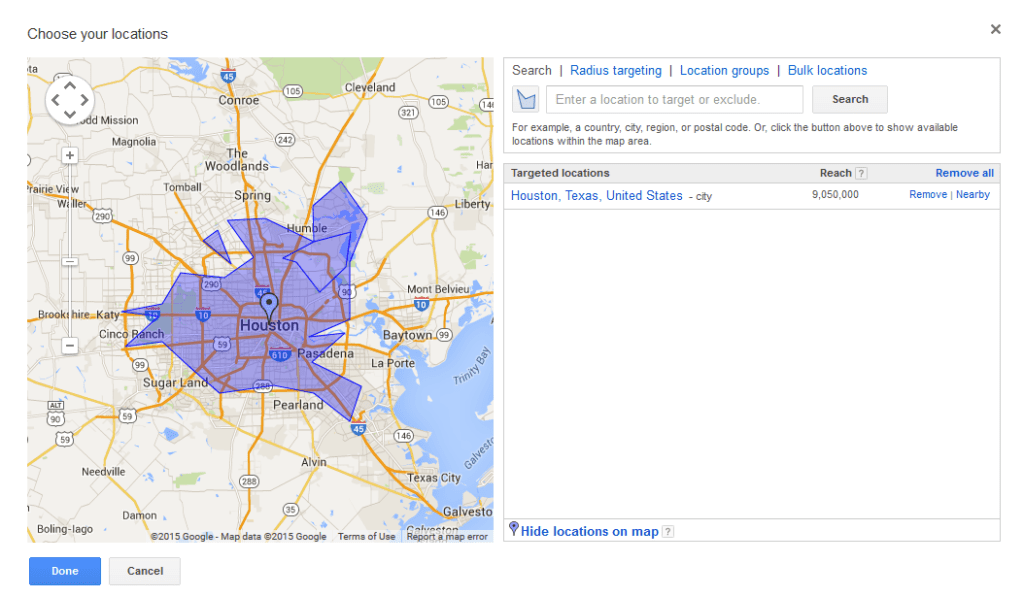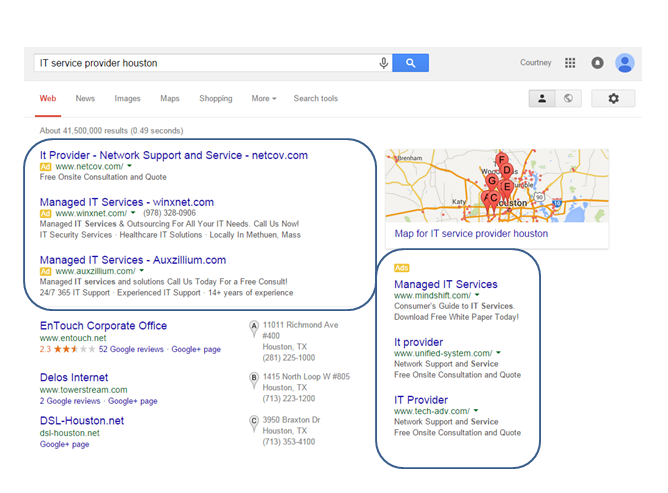
Q: I’m an established managed service provider and just opened another office in a nearby metro area where there’s tons of new prospects— and tons of competition. One of my friends suggested using pay per click advertising as a way of standing out in the local market. He said it worked well for his business, so I know it’s worth a try. I have no idea where to get started, though. Can you help me understand how to use PPC advertising as an MSP?
Congrats on opening a new location! It sounds like you’re on the right track to differentiating your MSP business in this new market because pay per click (PPC) advertising is an easy and effective way to do just that.
How to get started using Google AdWords
When we saw this question we knew just who to talk to. Sarah Duffy, digital marketing manager at Intronis MSP Solutions, knows all about PPC advertising, so we knew she would have great advice for how MSPs can get started. Here are Sarah’s tips:
1. Optimize your website
As you start using PPC ads, you’ll see increased traffic to your website, and you’ll need to make sure those viewers find your site useful. So, before you start thinking about your PPC strategy, make sure your website is optimized. If you’re going to be spending the money on online advertisements, you should also be spending the money to optimize your website.
Adding images, pertinent information, calls-to-action (to capture prospects’ information), and useful content to your site can help keep viewers engaged. Also, be sure to make your website visually appealing in a way that makes the information easily digestible.
If you already have these things on your site, make sure you regularly update your site to include the most relevant and useful content. As you do begin using PPC ads, keep an eye on Google Analytics to see your website’s traffic increase.
2. Develop a keyword strategy
Another thing you need to have in place before you start using PPC ads is a keyword list. In order to develop this, you’ll need to understand your customers and your competition. You can do this by interviewing your current customers to find out how they initially found out about your business.
Using this insight, create a list of keywords you would want your business to appear for on Google or Bing. As you develop this list, look up which of your competitors are listed under these searches. This research will help you determine which keywords are viable candidates for PPC ads.
If you aren’t sure where to begin, check out the Keyword Planner Tool on Google AdWords. This tool will help you find out what’s being searched on and what keywords might be the right fit for your business. From a local perspective MSPs can filter based on search volume, trends, geographic locations, and other options to get a more exact idea of what their prospects are searching on. Using these results, you can narrow down your keywords list to the ones you want to use for ads.
 3. Dedicate an appropriate budget
3. Dedicate an appropriate budget
PPC ads have the potential to drive a high volume of traffic to your website, which means new prospects and new business. But, there’s also the potential for it to become expensive, quickly. So, you’ll need to budget for the best case scenario, one where people can’t stop clicking on your ad!
BingAds and Google AdWords both offer initial credits for getting started. For example, Google AdWords offers a $100 advertising credit after you spend $25. You’ll need to find the one that makes the most sense for you and your budget.
For reference, the average cost for a keyword bid is approximately $16. An extraordinary price would be something like $64 and wouldn’t be worth investing in because this signals a high search volume and more competition.
Once you’ve determined your budget and keywords, estimate how many people will click on that ad so you can budget for each keyword. You can figure this out by doing an organic search on the keyword to determine how many competitors you have and by looking at the Keyword Planner Tool to find the keyword’s search volume.
4. Think about your ads
When you’re crafting your ads in Google AdWords, mix it up so you stand out. You can do this by looking at your competition for each keyword and thinking about the ad from your customer’s mindset. What ads would you click on? What looks or sounds appealing? Also, the ad should take you exactly where it says it will. For example, when you search on the term “IT service provider Houston” the top ads all have the words “IT services” or “IT provider” in the headline or description and they all take you to the homepage of that businesses’ website. Be upfront about what the ad is for and what your business does.
Keep in mind the 25 character limit for the headline and the two 35 character limits for the description lines. In order to get your message across in a persuasive and informative way, you’ll need to make use of each word. The headline should incorporate the keyword that was search on and the description should include a clear definition of what your business offers.
5. Converting web traffic to leads
Arguably the most important part of a PPC ad is the conversion rate or how it converts clicks to actionable leads for your sales team. The ad should point viewers to the right page on your site so it might be worth creating a few different landing pages to match your specific ads.
For example, you could point to a registration page that would capture the viewer’s contact information in a “free consultation” form. Or, point viewers to a landing page that references targeted and valuable content. In this case, make the content gated so that you get the reader’s contact information in exchange for sharing the piece of content. Another option would be to include a plans page that outlines the monthly cost of your service tier packages.
Once you get started, PPC advertising is easy and straightforward. But start small, try it with a few keywords you think might work and gauge its effectiveness. As you begin to learn more about which PPC ads work best for your business, you’ll see your website traffic and prospect list grow. The key point is that running an effective PPC advertising campaign is all about preparation. Make sure you’ve done the necessary research and have the right processes in place before you jump in.
Ask an MSP Expert is a weekly advice column answering common questions from MSPs and IT service providers. It covers topics ranging from pricing and selling to marketing and communications—and everything in between.

I love your summary and agree with what you’re saying. IT Service business have a much longer sales cycle, and with remarketing and seo in the mix, you will be on a winner. I wrote a blog to help MSPs succeed with their AdWords for this very reason https://leftleads.com/tips-that-reduce-your-msps-google-ad-spend/